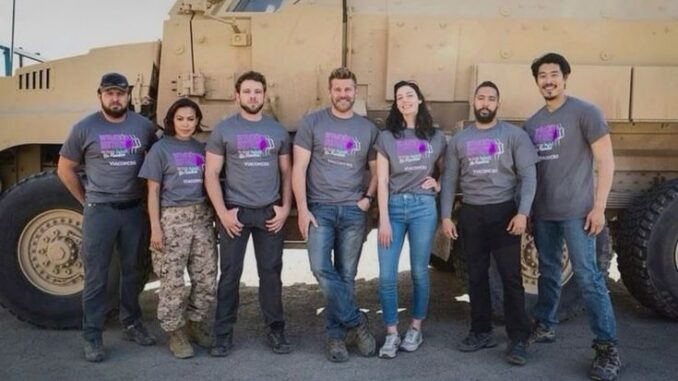
In the high-stakes world of the military, the pressure to perform can be immense. For individuals like Lisa, a character from the television series SEAL Team, navigating the complexities of professionalism while fostering personal relationships presents unique challenges. The military environment demands not only skill and resilience but also the ability to balance work obligations with personal connections. This article explores the strategies Lisa employs to maintain professionalism and personal relationships amidst the stresses of military life.
Understanding the Military Environment
The military operates in a highly structured and disciplined environment where decisions can have life-and-death consequences. Stress levels are often elevated due to the nature of missions, the need for teamwork, and the constant threat of danger. In such a setting, maintaining professionalism is not just a requirement but a critical component of operational effectiveness. For Lisa, this means adhering to military protocols and expectations while managing her interpersonal relationships with colleagues.
Building Trust Among Team Members
One of the key strategies Lisa employs to balance professionalism with personal relationships is the cultivation of trust within her team. Trust is the foundation of any successful military unit, as it enables seamless communication and collaboration. Lisa takes the time to understand her teammates on a personal level, engaging in conversations that go beyond work-related topics. By showing genuine interest in their lives, she fosters a supportive environment where team members feel valued and understood.
Lisa’s approach includes sharing her own experiences and vulnerabilities. This openness encourages her teammates to do the same, creating a sense of camaraderie and mutual respect. In a high-pressure environment, having a solid support system can significantly alleviate stress and improve overall morale.
Setting Boundaries
While personal relationships are important, Lisa understands the necessity of setting boundaries. She is aware that blurring the lines between personal and professional can lead to complications, especially in a military setting where decisions must be made quickly and efficiently. To maintain professionalism, Lisa establishes clear expectations with her colleagues regarding work roles and responsibilities.
By delineating personal and professional spaces, Lisa ensures that her relationships do not interfere with her duties. She encourages her teammates to do the same, emphasizing the importance of compartmentalizing emotions during missions. This practice helps the team focus on their objectives while also allowing them to lean on each other for support during downtime.
Effective Communication
Communication is critical in any environment, but it is especially vital in the military, where miscommunication can have severe consequences. Lisa prioritizes open and honest communication with her team, ensuring that everyone feels comfortable expressing their thoughts and concerns. This openness not only enhances team cohesion but also fosters an atmosphere where individuals can discuss personal issues without fear of judgment.
During stressful times, Lisa uses effective communication techniques to de-escalate tensions and address conflicts. By actively listening to her teammates and validating their feelings, she creates a safe space for discussion. This approach helps maintain professionalism while also nurturing personal relationships, as team members know they can rely on Lisa for support.
Practicing Self-Care
In a demanding military environment, self-care is often overlooked, yet it is crucial for maintaining both professionalism and personal relationships. Lisa recognizes the importance of taking care of her mental and physical well-being. She engages in activities that promote relaxation and stress relief, such as exercise, mindfulness practices, and hobbies outside of work.
By prioritizing her own self-care, Lisa models healthy behavior for her team. She encourages her colleagues to take breaks, seek support when needed, and engage in activities that help them recharge. This practice not only benefits Lisa but also creates a culture of well-being within the team, ultimately leading to improved performance and stronger personal relationships.
Seeking Support from Leadership
In a military setting, leadership plays a crucial role in shaping the culture and dynamics of a team. Lisa understands the importance of seeking support from her superiors when faced with overwhelming stress or personal challenges. By communicating openly with her leaders about her needs, Lisa not only advocates for herself but also sets an example for her teammates.
This approach fosters an environment where team members feel comfortable reaching out for help, creating a sense of unity and shared responsibility. When leadership actively supports the well-being of their personnel, it reinforces the importance of maintaining professionalism while also addressing personal relationships.
Conclusion
Maintaining professionalism and personal relationships in a stressful military environment is no small feat. Through her commitment to building trust, setting boundaries, practicing effective communication, prioritizing self-care, and seeking leadership support, Lisa successfully navigates the complexities of military life. Her strategies not only enhance her own well-being but also contribute to a cohesive and resilient team. In an environment where stress is a constant companion, Lisa serves as a testament to the power of balance, proving that professionalism and personal connections can coexist even in the most challenging circumstances.